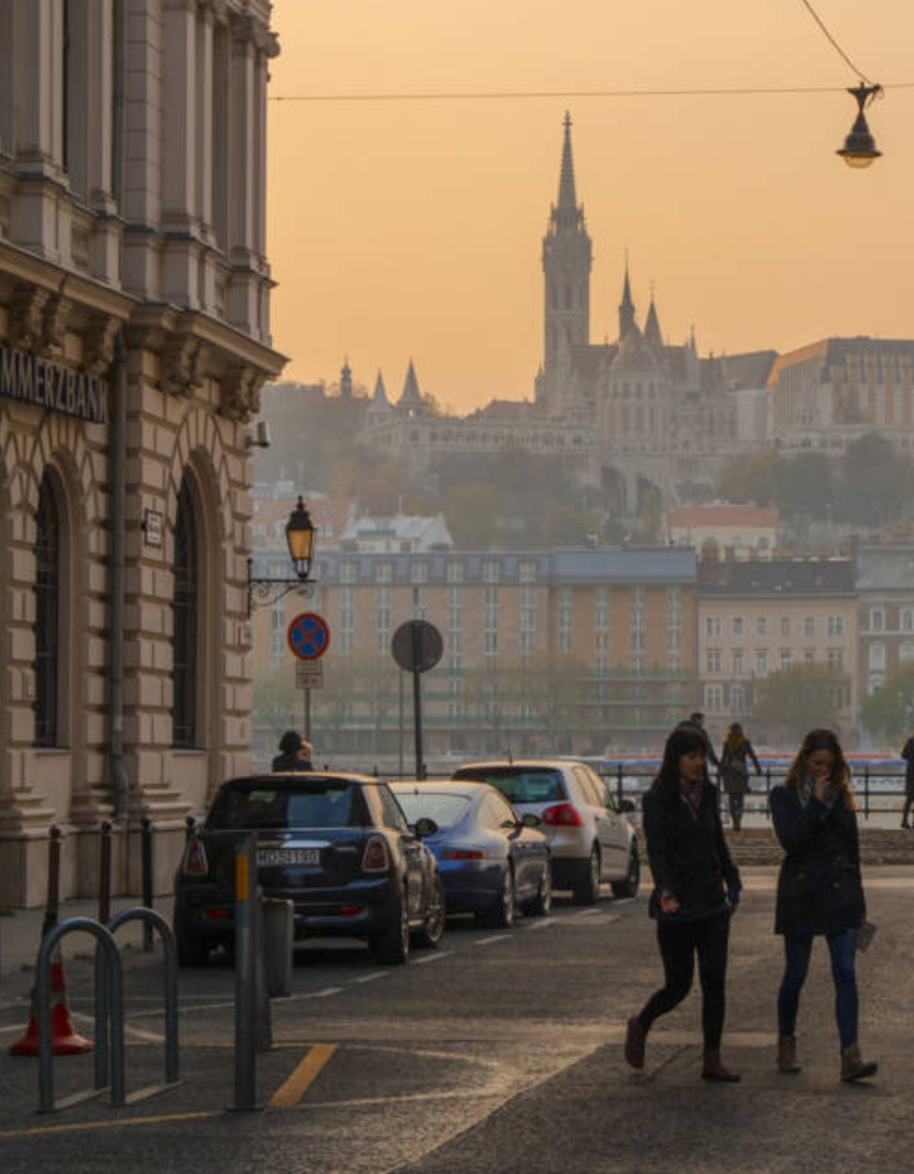Budapest, Hungary

At this moment, it is night in Budapest, and a woman has left her hat in a restaurant. This restaurant is in Buda, yet she is already crossing the bridge into Pest. Yes—perhaps you didn’t know—Budapest is not one place but two places split by a river. Like the woman separated from her hat. Perhaps we are all schizophrenics.
But there is a solution! We will become whole again, for at this moment, the woman is calling the restaurant, and the waiter there, who wears a black apron and has grey eyebrows, is saying, “Yes, Madame, yes! We have recovered your hat!”
And the woman, so thankful, for this hat was a present from her husband, now dead, only a year dead! She exclaims, “Thank you, thank you, I am coming. Please hold my hat, I will come!” And the waiter, waving a hand she cannot see, says, “Madame, we have called a taxi, and at this moment, your hat is on its way to you in Pest. It is riding in the back, on the seat, quite content, and you shall be reunited soon!”
And so, the woman sits in a café in Pest sipping an espresso and wearing a hat.
Scott Laughlin’s fiction and non-fiction has appeared in Guernica, Great Jones Street, Post Road, The L.A. Review of Books, and other publications. Scott has an MFA from Converse College and is Associate Director of the DISQUIET Literary Program in Lisbon, Portugal. He currently teaches at San Francisco University High School.
Scott Laughlin’s translation of a poem by celebrated Portuguese poet Albert de Lacerda will appear in Issue 14 of The Common, out this fall.
Photo by Flickr Creative Commons user Marcell Katona.




